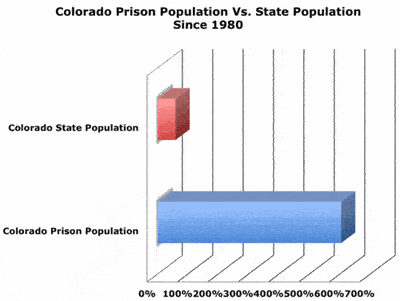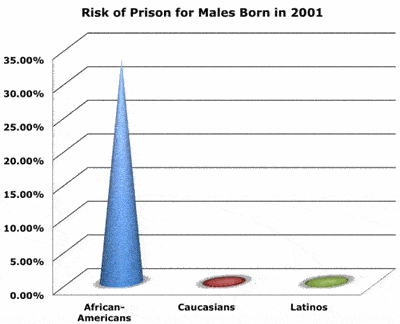Colorado State Forfeiture Laws
Author: Thomas C. Weiss
Published: 2013/08/13 - Updated: 2021/10/27
Category Topic: Editorials - Op-eds - Related Publications
Page Content: Synopsis - Introduction - Main
Synopsis: Article looks at forfeiture law in Colorado state that involves government seizure of property when connected to illegal activity. Colorado law states that a seizing law enforcement agency will sell forfeited property to an innocent co-owner; they will have the chance to buy the forfeited interest in the property at private sale at fair market value in lieu of public sale.
Introduction
Forfeiture involves government seizure of property that is connected to illegal activity. It is used by both federal and state law enforcement in the war on drugs and the practice continues to be controversial.
Main Content
Law enforcement agencies assert that it is needed and also effective in deterring drug-related crimes, while those who are opposed to forfeiture say that existing procedural safeguards result in too many innocent people having their property taken from them with little or no means of recovery. Many of those who get caught up in forfeiture laws are also people who experience forms of disabilities unfortunately.
The government has the authority to seize a person's property when it is connected to illegal activity, an authority that comes from federal statutes. Authorizing provisions of both state and local statutes are often times similar to federal law. The United States Supreme Court has identified certain categories of property that are subject to forfeiture which include:
- Contraband, such as property for which ownership itself is criminal like smuggled goods or illegal drugs
- Tools or, 'instrumentalities,' that are used in the commission of a crime such as cars, boats, or even real estate
- Proceeds from illegal activities, which means property that results from or may be traced back to illegal activities
The United States incarcerates more people for drug offenses than the European Union does for all offenses combined.

In the state of Colorado, and in other states presumably, there are two forms of forfeiture - Criminal and Civil. The government has the ability to take title to a person's private property under either criminal or civil law. Criminal forfeiture is a means of punishment that is taken against a person after they are convicted of a crime. The government seizes their property as a portion of their sentence. Due to the fact that it is a criminal proceeding, the person is provided with the protections of the 4th and 5th Amendments.
- 45 people a day are admitted to prison in Colorado
- 1 in 3 women and 1 in 5 men sent to prison were convicted of a drug offense
- 90% of women in prison were assessed to be in need of substance abuse treatment
- Each year 28% of people who are sent to prison were revoked for a technical violation of parole
- The Colorado prison population has grown 604% since 1980, the population of the state grew 59%
- The odds of a male born in 2001 going to prison during his lifetime are 1 in 3 for African Americans, 1 in 6 for Latinos, and 1 in 17 for Caucasians
Even though the crime must be proven beyond a reasonable doubt - the forfeiture itself requires a lower level of, 'burden of proof.' What this means is the government need only show by a preponderance of the evidence that the person obtained the property, 'around the time of the crime,' and that it was unlikely it came from another source. The burden is then placed upon the person to prove that this is not so.
In civil forfeiture cases, on the other hand, actions proceed against the property itself, which is the defendant in the case instead of the owner. Pay attention now - a criminal charge or conviction is not necessary before the government can seize a person's property. Prior to the Civil Asset Forfeiture Reform Act of the year 2000, law enforcement only needed to show probable cause that the property was involved in a crime in the state of Colorado (other states) usually through a search warrant, before they seized the property.

Perhaps not surprisingly, a majority of the forfeitures pursued by the government are civil ones. Forfeiture proceeding commonly go towards funding the activities of law enforcement, such as buying equipment, building prisons, paying off informants etc., and through some legislatures have specified, 'other purposes,' such as supporting public education. Law enforcement clearly has a strong financial incentive to use civil forfeiture instead of criminal forfeiture and critics say the practice have gone from being a means to fight drug-related crimes to being a means to fund law enforcement. Even though the provisions of the Act in the year 2000 made it easier for innocent people to challenge forfeitures in court and get their property back, the practice is one that remains controversial.
An example of why the practice of forfeiture remains controversial is that half of the proceeds from forfeitures in Colorado are distributed to the general fund of the government body with budgetary authority over the seizing law enforcement agency. If the city police, for example, conducted the seizure of a person's property, the proceeds would be allocated to the general fund of the city. The remaining half is distributed to the, 'Managed Service Organization (MSO),' that provides substance abuse treatment and detoxification in the judicial district where law enforcement pursued the forfeiture.
Not to seem cruel about forfeiture, Colorado law states that a seizing law enforcement agency will sell forfeited property to an innocent co-owner; they will have the chance to buy the forfeited interest in the property at private sale at fair market value in lieu of public sale. The question of how many innocent people with disabilities have been caught up in this trap remains. For example; what if a homeowner or vehicle owner with disabilities has a person living with them who has been caught with illegal drugs? Was their home or vehicle taken by law enforcement, only to find the person with disabilities being questioned and then finding them having to buy back their own property
One thing is certain - do not ever drive around in a vehicle while you are high on drugs in Colorado and get in a vehicle accident and hurt someone else. Doing so will find you behind bars, with your vehicle and possibly other property taken from you, potential civil forfeiture proceedings, and the guilt of harming another person. Do not sell even marijuana to a person who is age 15 or younger - it carries a mandatory 4 year sentence. For people who experience forms of intellectual disabilities, for example, it is far too easy to be used by real criminals for the purposes of transporting drugs and find themselves losing hard fought for property and being thrown behind bars or worse. In the meantime, law enforcement will sell that property and smile all the way to the bank.
 Author Credentials: Thomas C. Weiss is a researcher and editor for Disabled World. Thomas attended college and university courses earning a Masters, Bachelors and two Associate degrees, as well as pursing Disability Studies. As a CNA Thomas has providing care for people with all forms of disabilities. Explore Thomas' complete biography for comprehensive insights into his background, expertise, and accomplishments.
Author Credentials: Thomas C. Weiss is a researcher and editor for Disabled World. Thomas attended college and university courses earning a Masters, Bachelors and two Associate degrees, as well as pursing Disability Studies. As a CNA Thomas has providing care for people with all forms of disabilities. Explore Thomas' complete biography for comprehensive insights into his background, expertise, and accomplishments.